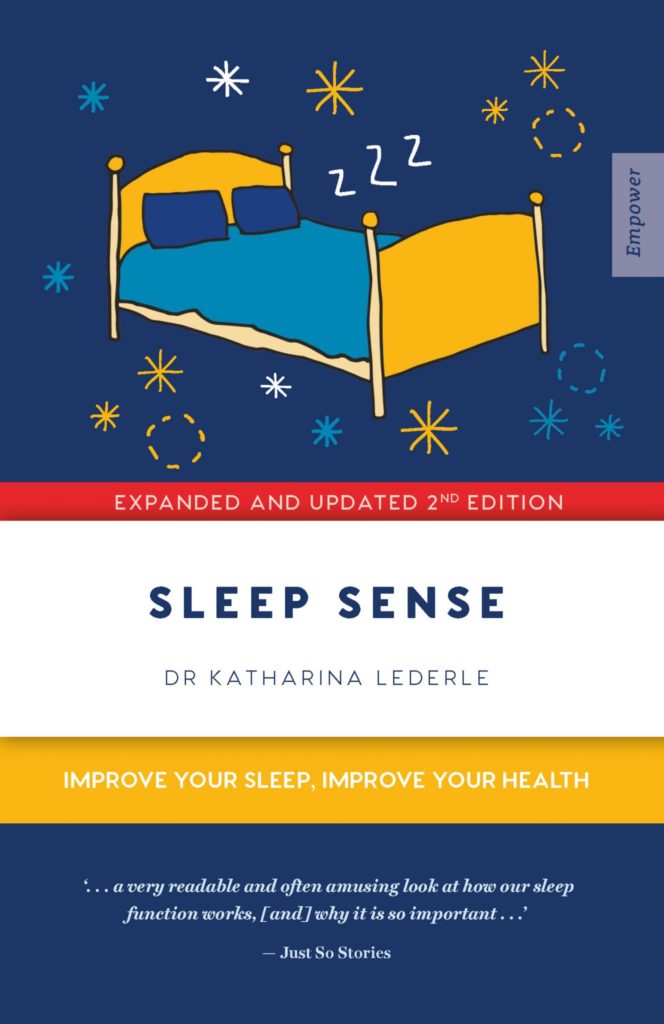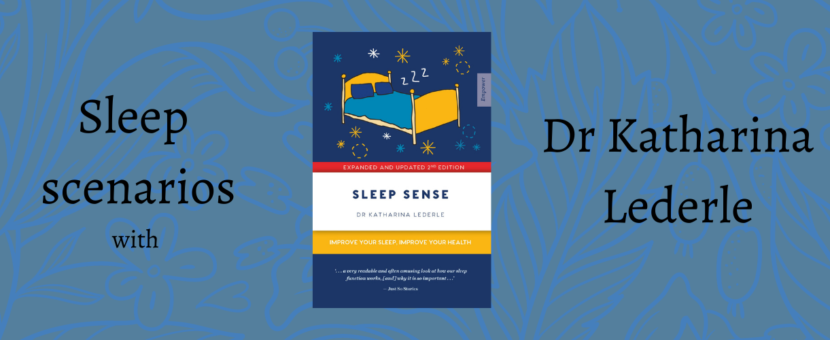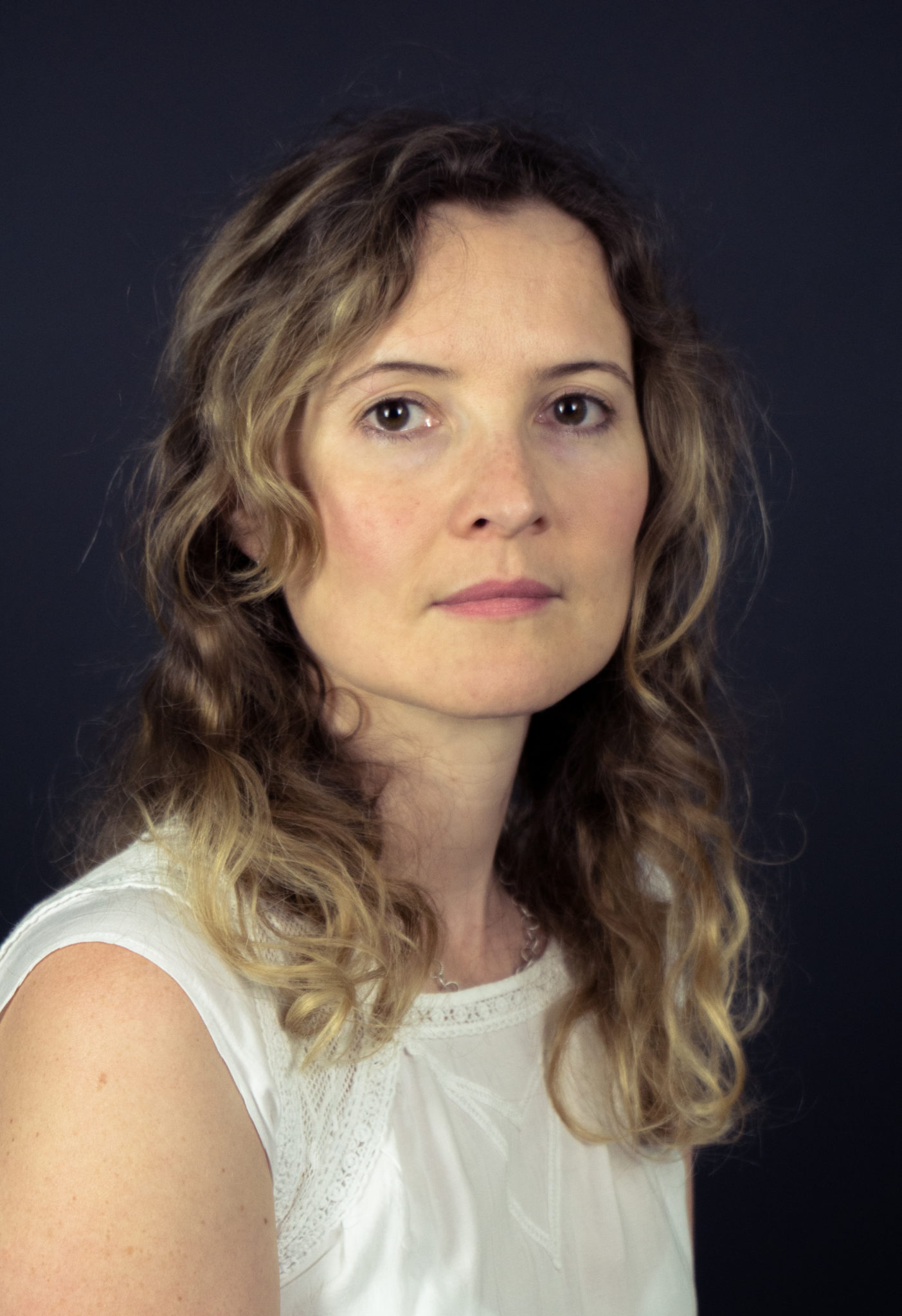
Improve your sleep, improve your health. How many conversations have you had with your friends about sleep issues? It’s a well-worn topic for a reason – with everyday life stresses and modern technology a constant source of distraction, it’s no wonder sleep is an area many of us can improve on.
In her new book, Sleep Sense, international sleep expert Dr Katharina Lederle draws on the latest research to explore how sleep is intricately connected to each of the three pillars of healthy, successful and balanced living: physical health, mental performance, and emotional wellbeing.
We thought we’d give readers a little taste of Sleep Sense by presenting Dr Lederle with five sleep scenarios and get her to answer them!
Bron (Female, 29):
Hi Katharina! I always thought I was a good sleeper but it occurred to me that I get up 2-4 times every night (to go to the bathroom mainly) and that my sleep might be more disrupted than I realise? Every time people ask me how I am, my go-to answer is “tired” because I am, even though I get 7-9 hours of sleep. Before bed I look at my phone or read – I dream heavily too. Could these constant bathroom interruptions be causing my sleep cycle to be ‘incomplete’?
Katharina: Waking up during the night is completely normal. In fact, we all wake several times each night. (You can find a diagram of this in Sleep Sense.) Usually, these awakenings are only a few seconds long which is why we don’t remember them unless you need the bathroom.
You say you feel tired during the day despite sleeping up to 9 hours. I’m wondering whether you get too much sleep and/ or at the wrong time which could reduce the quality of your sleep. Or sometimes when we have a lot going on with little time to process this during the day, the quality of our sleep can be affected.
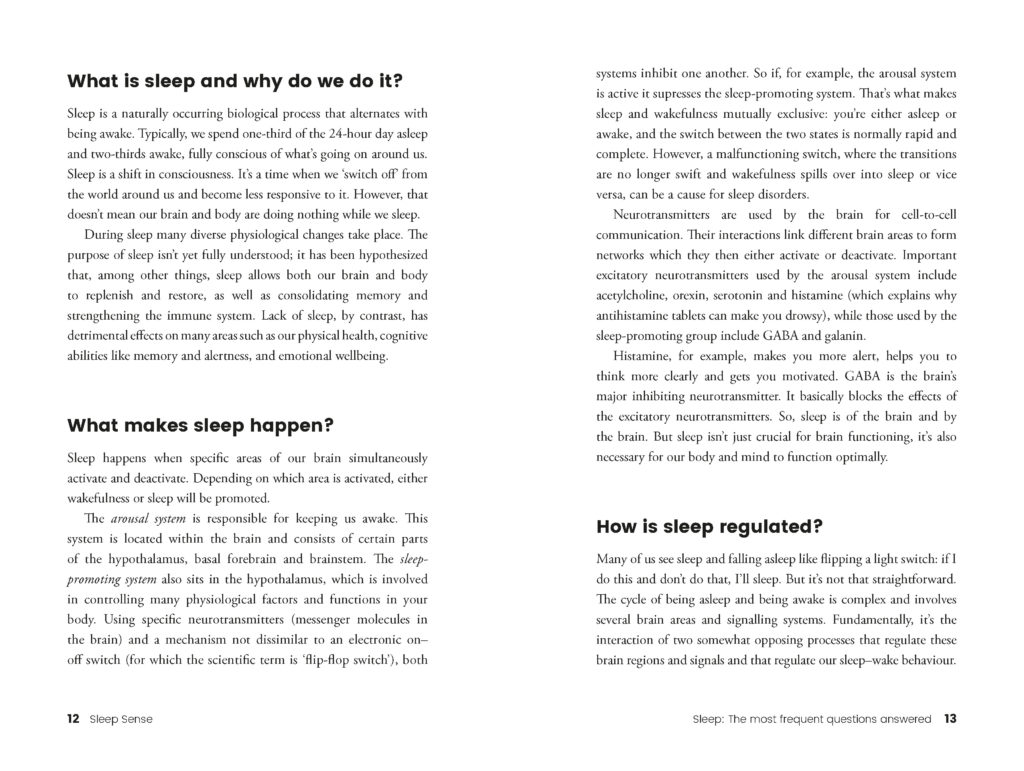
Martin (Male, 63):
Hi Katharina. I have asthma and sinus problems and I haven’t slept well in years. I wake often throughout the night because I can’t breathe properly and I’m forced to always breath through my mouth and I snore heavily. I’ve had several sinus operations but it’s never fixed it fully. I am also overweight and often need an afternoon nap. Do you have any advice regarding other things I could be doing to help with my sleep? Would some kind of sleep apnea machine be my best bet?
Katharina: Thank you Martin for your question and sharing your experience. Snoring is a hallmark of sleep apnoea and being overweight is definitely a risk factor for it. Losing weight will aid the snoring, but I think seeing a sleep medic would be best. They would be able to assess your sleep apnoea and recommend a CPAP machine for you to ensure you receive oxygen continuously.
You might feel tired during the day and try to boost your alertness by drinking a lot of coffee. However, caffeine can reduce the quality of your sleep even further, so be mindful of when and how much you drink. You can read more about the effects of caffeine in chapter 14 of Sleep Sense.
“Take a nap of no more than 30 minutes and make sure it’s no later than 3 p.m. Why these two restrictions? Firstly, to prevent you entering deep sleep – remember, it’s easier to wake up from light sleep, which takes about 20 minutes (plus a few minutes to fall asleep). Secondly, regardless of when you do it, napping reduces your sleep pressure (the drive to sleep) while being awake increases it (see Chapter 1). If you nap too close to your normal bedtime (or nap too long, for that matter) you won’t have enough time to achieve the right amount of sleep pressure so that you can go to sleep at your normal bedtime.”
Flynn (Female, 35):
Hi Dr Lederle. Since COVID began, I’ve been working from home like a lot of people. It means that I have been able to sleep in until 8:30am most mornings, which is a luxury. But now that we are going back into the office, I find my usual wake-up times of 6am are really hard for me. I wake up feeling completely exhausted and I can’t seem to force my body back into its old routine. Do you have any suggestions?
Katharina: A great and timely question Flynn! Working from home has allowed many people to sleep at times which are more in line with their ‘natural’ sleep times set by their internal body clock. You can learn more about the body clock in chapter 1 of Sleep Sense.
But let me come back to your question. You find it difficult to get up at 6am because you have had too little sleep, and your body knows exactly how much sleep it needs. In an ideal world, you would continue to sleep until 8:30am and work flexi-times. If that is not possible, try to shift your sleep window a little earlier. To do that you need to dim the lights early in the evening, slow down and try to go to bed earlier. (In a way you are tricking your body clock into believing it is already night when it isn’t.) In the morning, make it as bright as possible when you wake up and spend time outdoors as soon as you can. In chapter 2 you can learn more about the effects of light on sleep and the internal body clock.
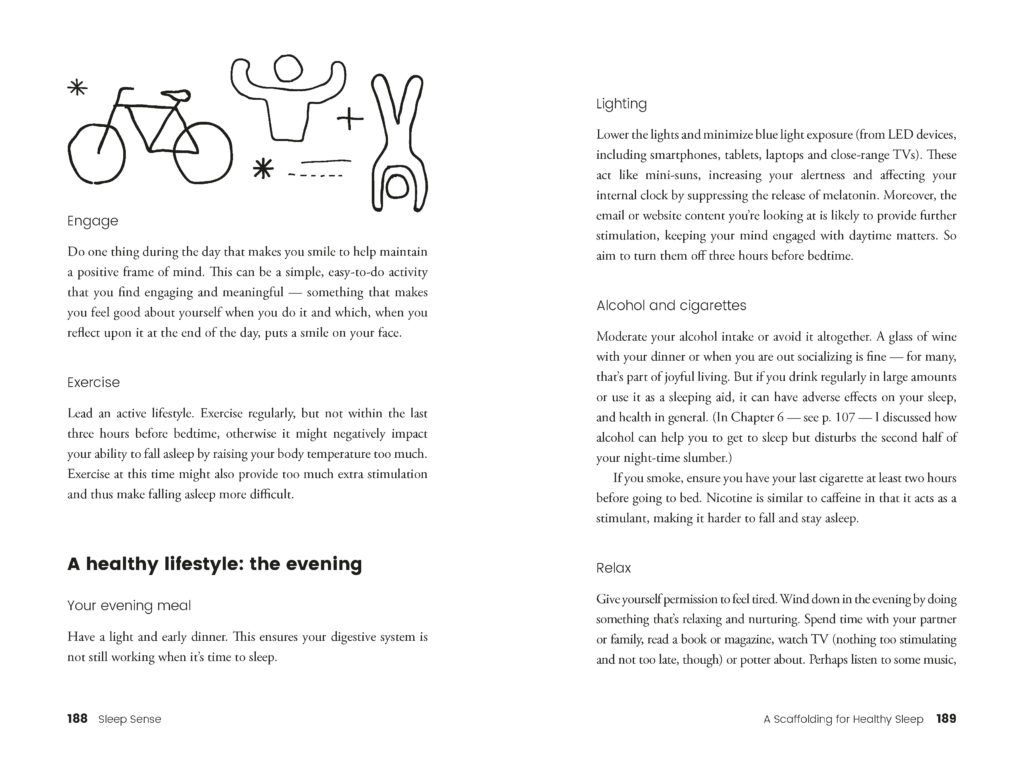
Lara (Female, 28):
Hi Katharina. I have trouble falling asleep in silence. I usually listen to a podcast or an episode of a TV show but when I am sleeping with others, I can’t do this and lay awake for hours. I try to read on my phone and that sometimes does the trick, but I worry that none of these are healthy habits. Is it a matter of retraining myself to fall asleep to nothing?
Katharina: You are right, having to rely on listening to a podcast or your phone to fall asleep aren’t helpful habits. Not only can the light from the phone stimulate you, there are costs to using these strategies when it comes to sharing a bed!
What happens when you can’t listen to a podcast? Does it help you to distract yourself from a busy mind and uncomfortable feelings? If that is the case, I think it would be much more helpful (and without long term costs) to learn to allow these thoughts to be there while not giving them much of your attention. An acceptance-based approach to the insomnia can help you. There is a short section in chapter 14 in Sleep Sense on this, and we could work on this together – so that you can sleep anywhere!
Lars (Male, 40):
Hi Katharina. I’d love to start a dream journal but I can never remember my dreams! Is there a trick to remembering them?
Katharina: Keeping a dream journal is the best way! Immediately after waking up, get your pen and paper out and just write what comes to mind. It sometimes takes a little while to become more aware of your dreams. Be patient!
